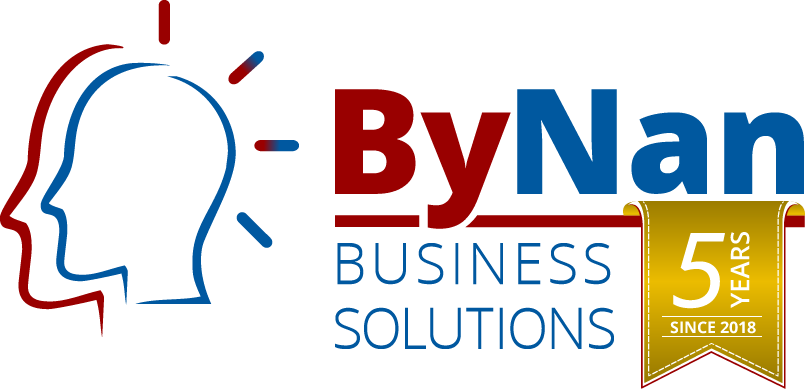Branding yourself can feel like a daunting process. Whether you’re an entrepreneur, a small business owner, or a professional looking to stand out in your industry, personal branding is crucial.
It’s the way you present yourself, build your reputation, and communicate your values to the world.
However, many individuals struggle with this concept.
Have you ever felt unsure about how to present yourself to potential clients? Or maybe you’re worried about standing out from your competitors.
You’re not alone.
These are just a few of the common challenges of personal branding that people face. Let’s break down these challenges and explore strategies that can help you overcome them.
#1: Defining Your Unique Value Proposition
One of the hardest aspects of personal branding is figuring out what makes you unique. Many people struggle with identifying their own strengths, especially in a competitive marketplace.
It’s easy to look at others and feel like you don’t have anything new to offer. Self-doubt and imposter syndrome often creep in, leaving you questioning your expertise and value. This challenge often leads to a “generic” brand that doesn’t stand out.
To overcome this challenge, start by conducting a self-assessment. What are your core strengths? What do you bring to the table that others don’t? This is your Unique Value Proposition (aka Unique Selling Proposition). Think about the problems you solve and the benefits you provide to others. If necessary, ask colleagues, friends, or clients for their feedback. They may identify strengths you hadn’t considered.
Once you know your UVP/USP, integrate it into all of your branding materials — your website, social media profiles, and business cards. Your personal brand should reflect who you are and what sets you apart.
#2: Maintaining Authenticity
Another major challenge is the pressure to conform to what others expect. Many people feel that they need to portray a certain image to be “professional,” which often results in a personal brand that feels forced or inauthentic.
The online world often bombards us with examples of what “success” should look like. Whether it’s Instagram influencers or LinkedIn thought leaders, the temptation to copy someone else’s brand is real. But what works for someone else may not work for you — and audiences can spot inauthenticity from a mile away.
Stay true to yourself. Authenticity is key to building a brand that resonates with people. Be honest about who you are, what you stand for, and what your business is about. If you try to adopt a persona that doesn’t feel genuine, it won’t resonate with others.
Start by asking yourself: What are my core values? What do I stand for? Personal branding is about showing people the real you. Don’t shy away from your quirks or unique personality traits. People gravitate towards those who are authentic and relatable.
#3: Consistency Across Platforms
A consistent brand is a strong brand. However, one of the biggest challenges of personal branding is maintaining consistency across multiple platforms.
With the rise of digital media, most professionals manage various online profiles—LinkedIn, Instagram, Facebook, their own website, etc. But with so many channels, it can be hard to maintain a cohesive image. One platform might show you as casual and fun, while another might make you seem more formal and reserved. This inconsistency can confuse your audience.
Create a personal brand style guide. This should outline your messaging, tone of voice, colour schemes, and key visuals. Think about how you want to be perceived and make sure that this is reflected on every platform you use.
From your social media profiles to your website and blog, ensure that your messaging is consistent. Use the same bio across your accounts, and be mindful of the tone you adopt in your posts and interactions. Consistency builds trust, and trust is essential for any successful brand.
#4: Building Credibility
Building credibility is another hurdle people face when working on their personal brand. Without credibility, your brand will struggle to gain trust and respect from potential clients or employers.
In the early stages of branding, it’s common to feel like you haven’t “earned” the authority to brand yourself as an expert. This leads to hesitation in presenting yourself with confidence, resulting in a weak or indecisive brand presence.
Credibility doesn’t have to come from years of experience or a long list of accolades. It’s about consistently delivering value to your audience. Share insights, write blog posts, give presentations — do whatever it takes to demonstrate your expertise.
Over time, your body of work will build credibility. Don’t be afraid to showcase testimonials, reviews, and case studies. Social proof is a powerful tool in establishing yourself as a credible expert in your field.
#5: Handling Negative Feedback
When you’re building a personal brand, putting yourself out there inevitably invites critique and, at times, negative feedback. Knowing how to deal with this is crucial to your branding success.
Negative feedback is hard to handle, especially when your brand is closely tied to your personal identity. This can discourage you from continuing to build your brand and cause second-guessing about your messaging.
First, recognize that negative feedback is a natural part of growth. It’s impossible to please everyone, and not every critic will have constructive feedback. Separate useful criticism from noise and use the former to refine your brand.
If the feedback is public (such as a negative comment on social media), respond professionally. A well-handled response can actually strengthen your brand and demonstrate your professionalism to others.
The Bottom Line:
Personal branding is not just about projecting an image; it’s about creating a cohesive, authentic identity that resonates with your audience. From defining your unique value to building credibility, the journey to a strong personal brand is filled with challenges. However, by embracing authenticity, staying consistent, and leaning into your strengths, you can overcome these challenges and establish a brand that helps you grow both personally and professionally.
Ready to take the next step in your business journey? Book your free one-on-one coaching session today and let’s work together to build a personal brand that aligns with your goals and values.

